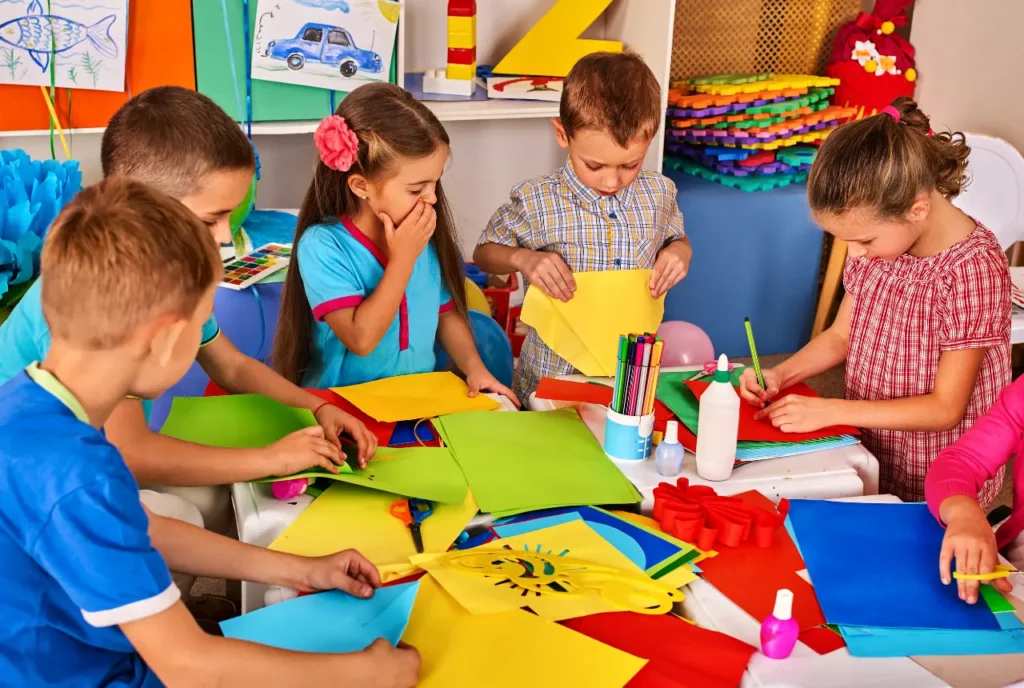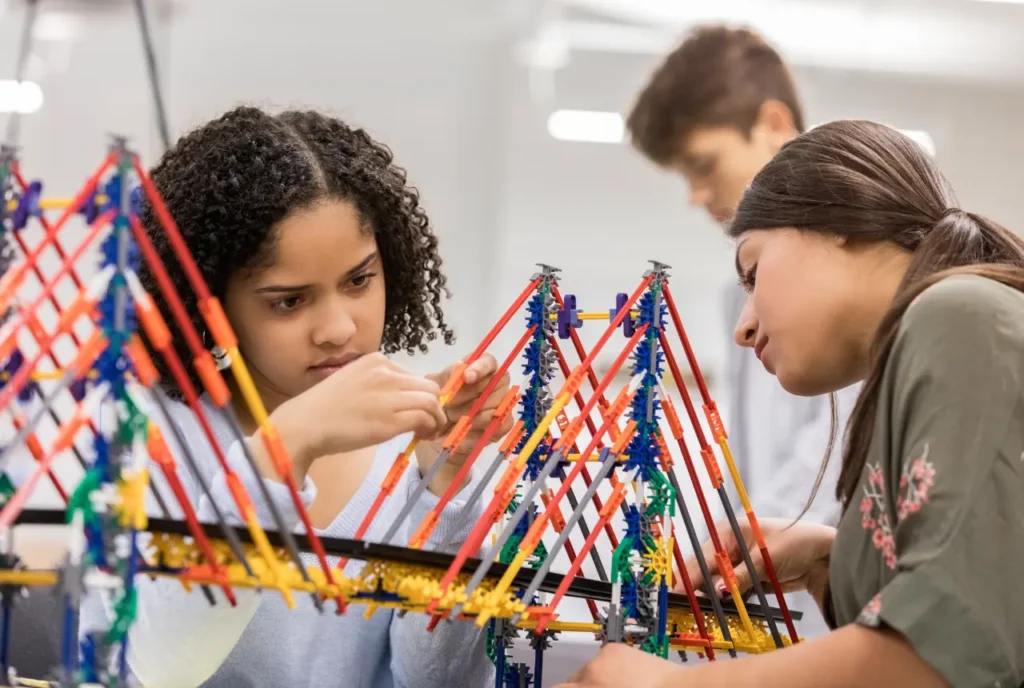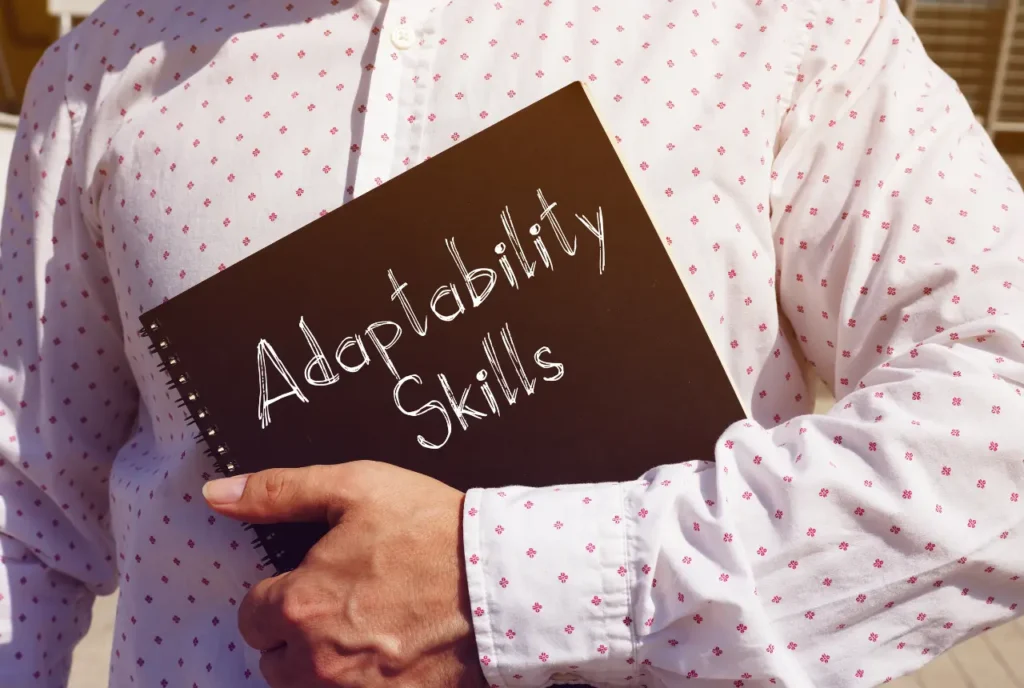Creativity is a vital life skill and a powerful means of expressing human qualities. The importance of creativity in education helps to foster innovative thinking among students. In today’s rapidly changing world, integrating creativity into modern educational systems not only enhances student engagement but also equips learners with essential skills for lifelong success.
Creativity is about creating new ideas. From problem-solving to innovation and critical thinking, creative teaching methods encourage students to think outside the box and engage in active learning. Incorporating creativity in the classroom can open diverse career paths for students and support their personal and professional success.
Creativity encourages students to tackle challenges with innovative solutions, fostering critical thinking. By participating in creative exercises, learners develop the ability to analyze situations from multiple perspectives, leading to more effective problem-solving.
“Creativity is as important now in education as literacy, and we should treat it with the same status,” said Sir Ken Robinson, a British educator, author, and speaker known for his views on education and creativity. Robinson emphasized the need for schools to encourage creativity and innovation instead of stifling them. He believed that traditional education often focuses too much on standardized testing, which can limit students’ potential. By promoting creative thinking, we can help students develop their unique talents and prepare them for a successful future.
To nurture the mindset of students, creativity is essential for fostering curiosity and innovation. It enables them to tackle real-world problems with original ideas and solutions that can drive change across various sectors. Creativity also motivates students to participate actively in their learning processes.
Understanding the Importance of Creativity in Education:

Every student possesses unique abilities in imagination and creativity, which are vital for holistic learning experiences. The importance of creativity in education transcends the arts; it empowers students to think critically and develop innovative solutions to societal challenges.
As we progress through 2024, educational trends increasingly emphasize creative teaching methods that actively engage students in their learning. This approach not only prepares them to tackle complex issues but also fosters a spirit of exploration and curiosity. By prioritizing creativity in the curriculum, educators can cultivate an environment where students thrive, encouraging them to embrace challenges with confidence and ingenuity.
How Creativity in Education Prepares Students for Lifelong Success?
Creativity is a crucial aspect of an effective learning process, as it prepares students to take risks and embrace challenges in life. It develops students’ emotional intelligence, which boosts self-esteem and helps cultivate social skills such as teamwork and collaboration.
Nurturing creativity from an early age equips students with the adaptability and resilience necessary for adult life. These qualities are irreplaceable across various career paths, not just those in traditionally creative fields.
Moreover, creativity fosters emotional intelligence, leadership capabilities, and collaborative skills, qualities that are essential in today’s interconnected workplace.
What is the Importance of Creativity in Education?
Creativity is essential in education as it nurtures independent thinking abilities of students. As a vital soft skill, it enhances emotional intelligence and personal expression. A creative teacher can significantly enrich students’ understanding and knowledge, inspiring them to explore new ideas and perspectives.
Schools serve as vital environments for effective learning, where nurturing creativity can lead to a more engaging and dynamic educational experience. By prioritizing creativity, educators can cultivate a culture of curiosity and innovation that prepares students for future challenges.
Creativity enhances Critical Thinking and Problem-Solving Skills

Creativity enhances students’ perspectives beyond traditional methods, encouraging them to think outside the box. It empowers them to overcome challenges, achieve goals, and seize various opportunities. Through creative approaches, students learn to identify and analyze solutions to problems effectively.
This ability allows them to implement innovative ideas and broaden their thinking, enabling them to explore multiple alternatives for solutions. By fostering creativity in education, we equip students with the skills necessary to navigate complexities and adapt in an ever-changing world, ultimately preparing them for future success in both personal and professional endeavors.
Boosts Emotional and Social Development

Engaging in creative endeavors can lead to greater self-awareness and understanding of one’s emotions.
Creativity enhances students’ perspectives beyond traditional methods, encouraging them to think outside the box. It empowers them to overcome challenges, achieve goals, and seize various opportunities. Through creative approaches, students learn to identify and analyze solutions to problems effectively.
This ability allows them to implement innovative ideas and broaden their thinking, enabling them to explore multiple alternatives for solutions. By fostering creativity in education, we equip students with the skills necessary to navigate complexities and adapt in an ever-changing world, ultimately preparing them for future success in both personal and professional endeavors.
Encourages Innovation and Entrepreneurial Mindset

Creativity is very important for helping students think of new ideas and become entrepreneurs in the future. It encourages them to brainstorm and come up with innovative solutions to different problems.
This skill prepares them for tough situations they may face later on. In entrepreneurship, being able to solve complex problems is crucial, and creativity helps students think in new ways.
It also teaches them to be resourceful, allowing them to find alternative solutions and make the best use of limited resources, an essential skill for any entrepreneur. By promoting creativity in education, we can help students learn to tackle challenges and inspire them to become the innovative leaders of tomorrow.
Increases Engagement and Motivation in Learning

Creativity plays a vital role in increasing engagement and motivation in learning. When students are encouraged to express their ideas through creative activities, such as art, music, or storytelling, they become more involved in the learning process.
This hands-on approach makes lessons more enjoyable and relevant, sparking curiosity and a desire to explore further. Creative tasks allow students to connect their interests with their studies, fostering a sense of ownership over their learning.
As they see their ideas come to life, their confidence grows, motivating them to participate more actively. Overall, integrating creativity into education transforms the learning experience, making it more dynamic and inspiring for students.
Builds Adaptability and Resilience

Creativity is essential for building adaptability and resilience. When students engage in creative activities, they learn to approach problems from different angles, which helps them adapt to new situations.
This process encourages risk-taking and experimentation, showing that failure is a natural part of learning. As they face challenges in their creative work, they develop resilience and the ability to keep going despite setbacks.
This mindset not only empowers them to overcome obstacles but also boosts their confidence for future challenges. By fostering creativity, individuals become more adaptable and resilient, equipping them to handle change and grow personally. Ultimately, creativity helps build the skills necessary for navigating life’s uncertainties with confidence.
Fosters Collaboration and Teamwork

Creative collaborative tasks are key to fostering teamwork among students. When they work together on projects like art, music, or group presentations, they learn to communicate effectively and share ideas.
These activities encourage listening to each other’s perspectives, which enhances understanding and cooperation. Additionally, students develop important conflict resolution skills as they navigate differences in opinions and find common ground. This experience not only builds strong relationships but also prepares them for future work environments where collaboration is essential.
Ultimately, engaging in creative teamwork helps students become better collaborators, enhancing their ability to work successfully with others.
Promotes Lifelong Learning and Curiosity

Creativity encourages lifelong learning and curiosity by inspiring students to explore and ask questions. When students take part in creative activities, they become eager to learn more about different topics and try new things.
This exploration helps them develop a love for learning that lasts beyond the classroom. Creative projects often involve experimenting and discovering, leading individuals to dig deeper into subjects they enjoy.
As they pursue their creative interests, they build a mindset that values growth and learning. Ultimately, creativity nurtures curiosity, empowering people to embrace new challenges and experiences, which enriches their lives over time.
Strategies to Encourage Creativity in Education:
To encourage creativity in education, teachers can use several practical strategies. One effective method is project-based learning, where students work on real-world projects that require innovative thinking and teamwork.
For example, in a science class, students could design and build a model of a sustainable city. Another approach is design thinking, which helps students understand problems and come up with creative solutions. For instance, in a technology class, students might create an app to solve a community issue.
Incorporating arts into lessons, like using drawings to explore history, can also boost creativity. It’s important to have a balanced curriculum that values both creative and analytical skills, as this helps prepare students for various challenges in life.
By using these strategies, teachers can create an engaging classroom that nurtures creativity while also developing critical thinking skills.
The Future of Education: How Creativity Will Shape Success in the Future

As technology grows and job markets change, creativity is becoming very important in education. Experts believe that encouraging creative thinking helps students prepare for future challenges and adapt to new situations. In a world where artificial intelligence is taking over many jobs, being able to think creatively will make people stand out.
Education is starting to focus more on project-based learning, teamwork, and subjects that connect different ideas, all of which support creativity. By allowing students to explore ideas and solve problems together, teachers help them develop skills that are essential for success in today’s workforce.
Creativity will have a lasting impact on future success. When students learn to embrace creativity, they improve their problem-solving skills and build resilience, preparing them for a lifetime of success in a changing world.
Conclusion
In conclusion, creativity is very important in education for lifelong personal and professional success. It helps students develop essential skills like problem-solving, adaptability, and innovative thinking, which are needed in today’s fast-changing world.
To prepare future generations for challenges, educators, parents, and policymakers should prioritize creativity in learning environments. By including creative methods in teaching, we can inspire students to explore their potential and become confident individuals. Focusing on creativity not only improves academic performance but also empowers students to succeed in their careers and personal lives.








